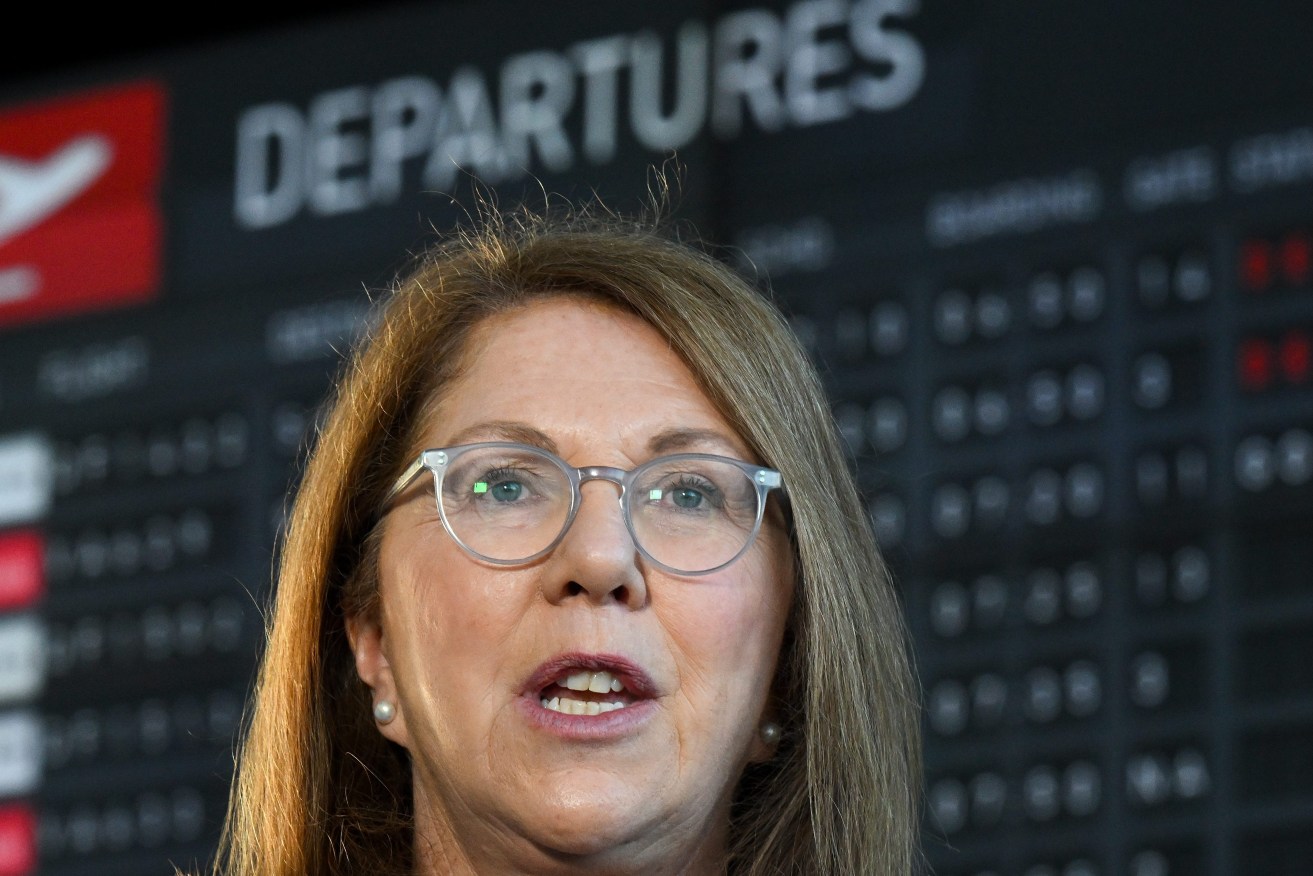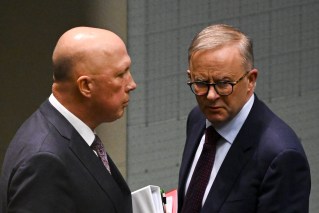Feds turn off the tap: States will have to pay ‘at least half’ of bills for future projects
State governments will be forced to foot at least half the bill for new infrastructure projects, and become more accountable for cost blow-outs as part of a federal funding overhaul.

Australian Infrastructure Minister Catherine King speaks to the media during a press conference at Canberra Airport in Canberra, Thursday, September 7, 2023. (AAP Image/Lukas Coch)
The Commonwealth will fund major infrastructure projects on a 50-50 basis with the states and territories.
Projects must either align with broader national priorities, be related to the National Land Transport Network or key freight routes, or require a Commonwealth contribution of at least $250 million to receive federal funding.
Infrastructure Minister Catherine King made the announcement during a keynote speech, just over a week after an independent review found the federal infrastructure budget had blown out by $33 billion.
“Australia’s infrastructure investment pipeline has become a house built on sand,” she said on Tuesday.
“If we continue as we currently are, we cannot commit to any new projects for the next 10 years – until 2033.
“We’re not cutting funding, we’re cutting the lies and we’re cutting the waste.”
Previously, major infrastructure projects were entirely funded by the federal government or split 80-20.
The new ratio means federal and state or territory governments will carry an equal share of the benefits and risks involved and, in some cases, projects may receive more funding.
The minister cited the Bruce Highway as an example, which has been granted $10 billion from the federal government.
The 80-20 ratio would have set its total worth at $12 billion but an even spending split means it could go as high as $20 billion.
“This is not about saving money – it is about shared accountability and maximising our investments,” Ms King said.
“What we are doing is ending the perverse incentives that saw the federal coalition throw money at projects that states did not want to build – and then they simply never happened.”
Under the previous government, the number of infrastructure projects ballooned from 150 to 800.












